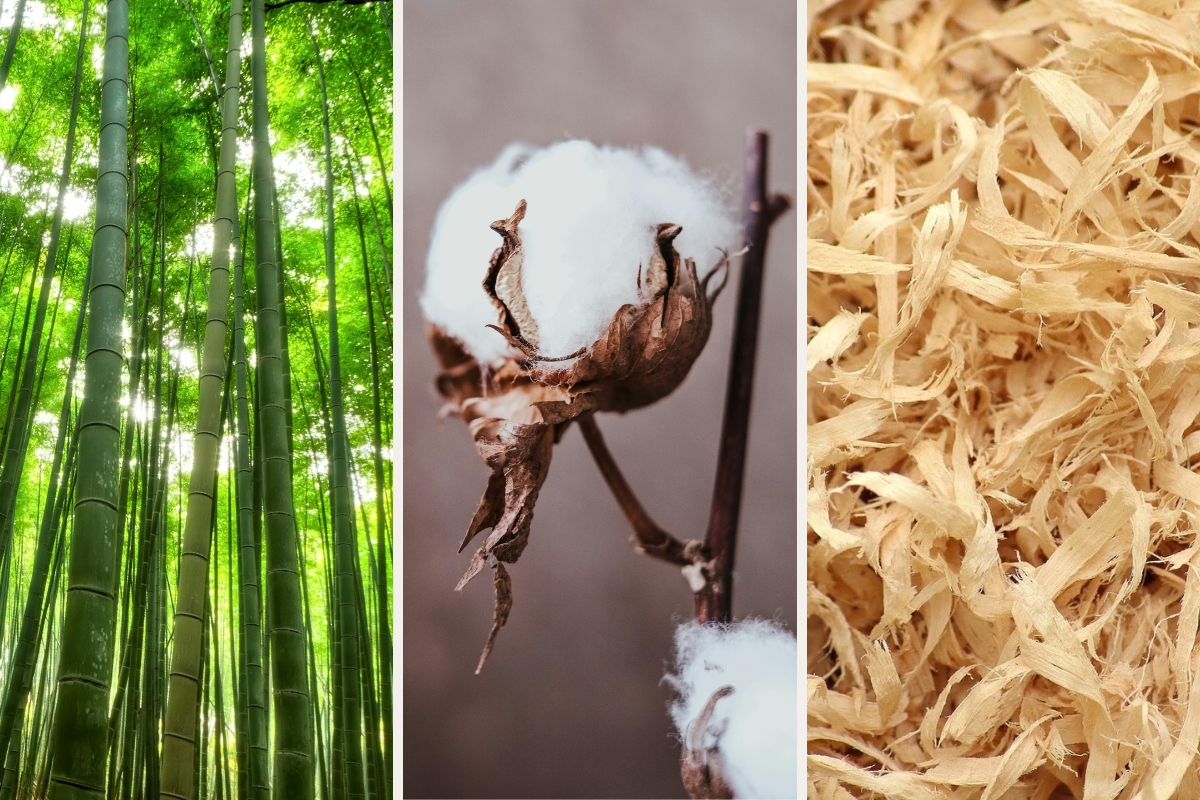Prioritizing your menstrual health means paying attention to what comes into contact with your body and making informed choices. Understanding the differences between fibres helps you decide what aligns with your values, your comfort, and your well-being.
When it comes to period products, the ingredient list can feel like a science experiment. Wood pulp, bamboo, cotton, what is safe, what is natural, and what is actually good for you AND the planet? We are here to cut through the confusion and break it down so you can choose what feels right for you!
Wood Pulp
Wood pulp on its own isn’t harmful to your health. It’s simply ground and washed wood. The catch is that before it can be used in menstrual products, it must be purified and bleached. This process involves varying degrees of chemicals depending on the desired result. Some brands use chlorine bleaching, which is very harmful to both your health and the environment. Chlorine bleaching can leave behind dioxin residues, highly persistent pollutants that are toxic and have potential carcinogenic and hormone-disrupting effects.
Even when companies claim to use chlorine-free methods, residues can still remain. Chemical treatments like hydrogen peroxide or ozone are often required to make the pulp usable, and these treatments also carry potential health risks. Some brands market themselves as natural and safe, but it’s often very difficult to find transparent information about the source of the wood pulp, how it was processed, and which chemicals were used.
Bamboo
Bamboo gets a lot of hype as the chic, eco-friendly go-to of sustainable materials. It grows fast, shoots up like a mini skyscraper in warm climates, and its strong, lightweight stems can reach up to 25 metres tall. On its own, bamboo is pretty impressive. It requires little to no pesticides, is naturally antimicrobial, and is biodegradable.
However, the reality is a little more complicated. Most bamboo fibres used in products are not left in their natural form. To become a soft, silky material suitable for textiles, bamboo must be chemically processed into viscose or rayon. This transformation strips away the bamboo’s natural properties, including its antimicrobial benefits. The process involves dissolving the bamboo pulp in caustic soda and treating it with acidic solutions, which can have serious environmental impacts and pose health risks to workers.
Viscose is technically a plant-based plastic rather than a natural fibre. Because bamboo fibre is cheaper to produce than cotton, many companies market products as “bamboo” even though they are mostly viscose or rayon. Legally, these items should be labeled “rayon from bamboo” or “viscose from bamboo,” but transparency is often limited, making it difficult for us to know what we’re actually buying.
Organic Cotton
Cotton is simple, clean, and honest. It does not require harsh chemical treatments and is easy to produce responsibly. Choosing 100% organic cotton is one of the best ways to reduce chemical exposure and support more sustainable practices. Organic cotton is less processed and has longer, interlocking fibres, which makes it stronger and less likely to shed compared to rayon-based alternatives, whose shorter, straighter fibres can break down more easily. We’ve made it our mission to use only 100% GOTS-certified organic cotton, ensuring the highest standard of care for your body and the planet.
GOTS certification takes this even further. It ensures that the cotton meets strict environmental and social standards at every stage, from farming to production to distribution. This means the cotton is grown without harmful chemicals, processed responsibly, and handled in ways that are safer.
Conclusion
At the end of the day, the best choice is the one that feels right for you, but when it comes to both your health and the planet, GOTS-certified organic cotton stands out. It is gentle, minimally processed, and grown with care, making it a safer, more sustainable option than other fibres. Prioritizing your menstrual health means paying attention to what touches your body, and choosing products made from organic cotton is a simple way to do just that. Check out our pads, pantyliners, and tampons, and reach out to our team if you have any questions!




